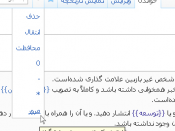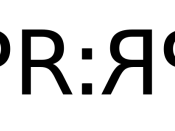History & Knowledge .
Is it possible to write history without bias? I will use an example of bias from Korean History as factual basis for my discussion, consider if bias really matters and if it can be overcome.
What is Cultural Bias in History?
(As opposed to personal bias)
Cultural bias occurs where, 'a historical inference, description, or explanation is later found to be untrue or unfair, relative to the evidence available, because of a culture wide interest in information of one kind rather than another.'(p41) The example below is an instance of cultural bias because it formed the basic and accepted academic model for the interpretation of 20th Century Korean history. (Wells; pp.191,192) McCullagh's example of cultural bias is "white male history". (p.41)
An Example from Korean History.
Kenneth M. Wells writes that 20th Century Korean History has been interpreted largely using a nationalist framework. This framework leaves out a vast proportion of important information that does not fall under this area.(p197)
In particular, he considers the circumstances of Korean Women in the early 1900's and argues these do fit under the auspices of Nationalism but not in a conventional sense. In Korean history it has often been assumed, '...that nationalism works on behalf of all and therefore it is in everyone's interest to work on behalf of nationalism.' (p192) But for Korean women, mainly confined to the private sphere, nationalism has offered little, they were wives first and then citizens. Even more significantly the nationalist cause was a hindrance to the women's movement because debate in the public sphere was diverted to nationalist issues, gender equality was considered secondary to the important task of gaining independence (from the Japanese) and because women's activities that were not nationalistic were considered "...irrelevant, frivolous, or anti-male..." (p218) So clearly the...



Terrific.
I would be interested in reading your thoughts on the Japanese school book controversy which you briefly touch on here. I think it was instructive that the Chinese were throwing projectiles and overturning cars last year during its height, not knowing that these books have been around for years and are used in only 2 schools whereas their histories neglect EVERYTHING. The best example of bias would be their use of such adjectives asw "barbaric" "bandits" etc. which I would never expect to see in any British history textbook.
0 out of 0 people found this comment useful.